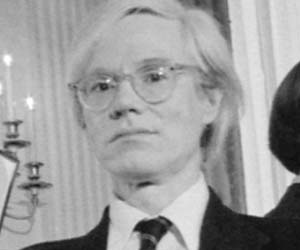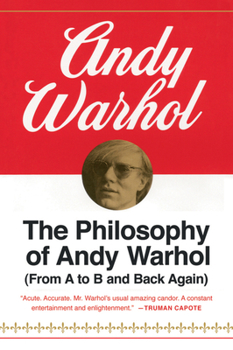The Philosophy of Andy Warhol: From A to B and Back Again
Select Format
Select Condition 
Book Overview
In The Philosophy of Andy Warhol, the enigmatic, legendary Warhol makes the reader his confidant on love, sex, food, beauty, fame, work, money, success, and much more.
Andy Warhol claimed that he loved being outside a party--so that he could get in. But more often than not, the party was at his own studio, The Factory, where celebrities--from Edie Sedgwick and Allen Ginsberg to the Rolling Stones and the Velvet Underground--gathered...
Customer Reviews
Of course it's brilliant, and it's b.s., which is why it's brilliant...
Pop Philosophy
From A to B and back again!!
sheer warholian goodness
Turns your mind upside-down
The Philosophy of Andy Warhol (From A to B and Back Again) Mentions in Our Blog

With the debut of Ryan Murphy's The Andy Warhol Diaries on Netflix, Andy Warhol is in the spotlight again. But while this docuseries focuses on Warhol's romantic and artistic life (with excerpts taken from his actual diary, which has a 25th anniversary edition coming out in May), we wanted to highlight some of the powerful personalities who moved in and out of Warhol's life, lending their own magnetism to his mystique.





